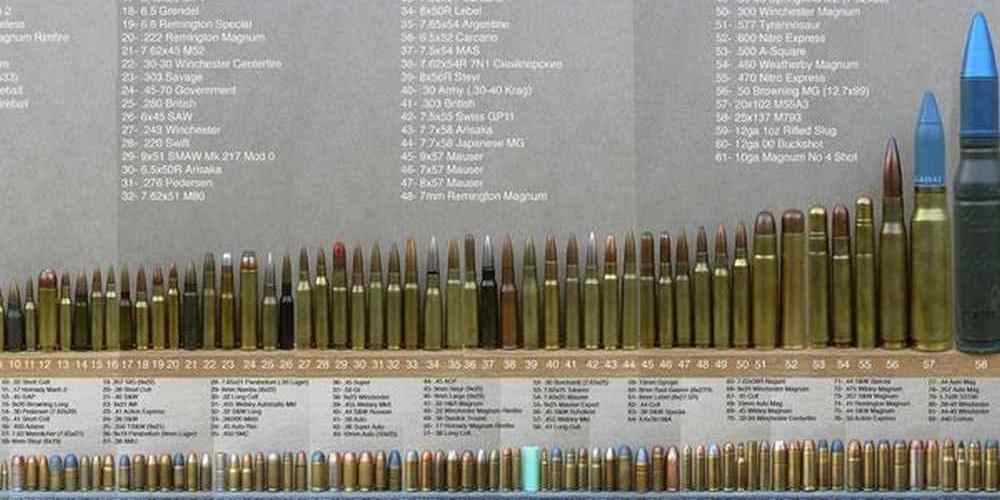“Know the laws, protect your rights, and use rifle ammunition responsibly.”
Federal Laws Regarding Rifle Ammunition
Rifle ammunition laws are an important aspect of gun ownership that all gun owners should be familiar with. Understanding your rights and responsibilities when it comes to rifle ammunition can help you stay on the right side of the law and ensure that you are using your firearms safely and responsibly.
Federal laws regarding rifle ammunition are in place to regulate the sale, purchase, and possession of ammunition for rifles. These laws are designed to prevent the misuse of firearms and to ensure that gun owners are using their weapons in a safe and responsible manner.
One of the key federal laws regarding rifle ammunition is the Gun Control Act of 1968. This law prohibits certain individuals from purchasing or possessing firearms and ammunition, including convicted felons, individuals with a history of domestic violence, and individuals who have been involuntarily committed to a mental institution.
In addition to the Gun Control Act, there are also regulations in place that govern the sale of rifle ammunition. For example, licensed firearms dealers are required to keep records of all ammunition sales, including the type and quantity of ammunition sold, as well as the name and address of the purchaser. This information is used to track the sale and distribution of ammunition and to help law enforcement agencies investigate crimes involving firearms.
It is important for gun owners to be aware of these regulations and to comply with them when purchasing rifle ammunition. Failure to do so can result in criminal charges and the loss of your right to own firearms.
In addition to federal laws, there are also state laws that govern the sale and possession of rifle ammunition. These laws can vary from state to state, so it is important to familiarize yourself with the specific laws in your state.
Some states have additional restrictions on the sale and possession of rifle ammunition, such as limits on the quantity of ammunition that can be purchased at one time or restrictions on the types of ammunition that can be used in certain firearms. It is important to be aware of these laws and to comply with them to avoid legal trouble.
In conclusion, understanding your rights and responsibilities when it comes to rifle ammunition is essential for all gun owners. By familiarizing yourself with federal and state laws regarding the sale and possession of rifle ammunition, you can ensure that you are using your firearms safely and responsibly. Remember to always comply with the law and to seek legal advice if you have any questions or concerns about rifle ammunition laws.

State Regulations on Rifle Ammunition
Rifle ammunition laws can vary greatly from state to state, so it’s important for gun owners to understand their rights and responsibilities when it comes to purchasing and using rifle ammunition. Each state has its own regulations regarding the sale, possession, and use of rifle ammunition, so it’s crucial to familiarize yourself with the laws in your specific state.
One of the most important things to know about rifle ammunition laws is that some states have restrictions on the types of ammunition that can be used in certain firearms. For example, some states prohibit the use of armor-piercing ammunition, while others may have restrictions on the caliber or type of ammunition that can be used in certain firearms. It’s important to know what types of ammunition are legal in your state and to make sure that you are in compliance with the law.
In addition to restrictions on the types of ammunition that can be used, some states also have regulations regarding the sale and purchase of rifle ammunition. In some states, you may be required to show identification and undergo a background check before purchasing rifle ammunition. It’s important to know what the requirements are in your state and to make sure that you are following the law when purchasing ammunition.
Another important aspect of rifle ammunition laws is storage and transportation. Some states have regulations regarding how rifle ammunition must be stored in order to prevent accidents or theft. It’s important to know what the requirements are in your state and to make sure that you are storing your ammunition safely and securely.
When it comes to transporting rifle ammunition, some states have regulations regarding how it must be transported in a vehicle. For example, some states require that rifle ammunition be stored in a locked container or in the trunk of a vehicle when being transported. It’s important to know what the requirements are in your state and to make sure that you are following the law when transporting ammunition.
Overall, it’s important for gun owners to understand their rights and responsibilities when it comes to rifle ammunition laws. By familiarizing yourself with the laws in your state and making sure that you are in compliance with them, you can help ensure that you are using your rifle ammunition safely and legally. If you have any questions about rifle ammunition laws in your state, it’s a good idea to consult with a legal expert or your local law enforcement agency for guidance. By staying informed and following the law, you can help ensure that you are a responsible gun owner and that you are using your rifle ammunition in a safe and legal manner.
Background Checks and Purchasing Requirements
When it comes to purchasing rifle ammunition, there are certain laws and regulations that gun owners must adhere to. Understanding your rights and responsibilities when it comes to buying ammunition is crucial to ensure that you are in compliance with the law. One of the key aspects of purchasing rifle ammunition is undergoing a background check.
Background checks are a standard procedure when purchasing firearms and ammunition in the United States. These checks are designed to prevent individuals who are prohibited from owning firearms from obtaining them. When you purchase rifle ammunition, you will be required to fill out a form and provide identification. This information is then used to conduct a background check to determine if you are eligible to purchase ammunition.
It is important to note that background checks are not meant to infringe on your Second Amendment rights. They are simply a way to ensure that firearms and ammunition do not end up in the wrong hands. By undergoing a background check, you are demonstrating that you are a responsible gun owner who is committed to following the law.
In addition to background checks, there are also purchasing requirements that gun owners must meet when buying rifle ammunition. These requirements vary from state to state, so it is important to familiarize yourself with the laws in your area. Some states may have restrictions on the type of ammunition that can be purchased, while others may require a waiting period before you can take possession of your ammunition.
It is also important to note that certain individuals are prohibited from purchasing rifle ammunition. This includes individuals who have been convicted of a felony, individuals who are subject to a restraining order, and individuals who have been deemed mentally incompetent. If you fall into any of these categories, you will not be able to purchase rifle ammunition.
When purchasing rifle ammunition, it is important to keep accurate records of your transactions. This includes keeping receipts and documentation of your purchases. By maintaining detailed records, you can demonstrate that you are in compliance with the law and that you are a responsible gun owner.
It is also important to store your ammunition safely and securely. This means keeping it locked away in a secure location where it is not accessible to unauthorized individuals. By storing your ammunition properly, you can prevent accidents and ensure that your ammunition does not fall into the wrong hands.
In conclusion, understanding your rights and responsibilities when it comes to purchasing rifle ammunition is essential for all gun owners. By undergoing background checks, meeting purchasing requirements, and keeping accurate records, you can demonstrate that you are a responsible gun owner who is committed to following the law. By following these guidelines, you can ensure that you are in compliance with rifle ammunition laws and that you are doing your part to promote gun safety.
Storage and Transportation Guidelines for Rifle Ammunition
Rifle ammunition laws can be complex and confusing, but it’s important for gun owners to understand their rights and responsibilities when it comes to storing and transporting their ammunition. In this article, we will discuss some guidelines for safely storing and transporting rifle ammunition to ensure compliance with the law and promote safety.
When it comes to storing rifle ammunition, it’s important to keep it in a secure and locked container. This helps prevent unauthorized access and ensures that the ammunition is not easily accessible to children or others who should not have access to it. Additionally, storing ammunition in a locked container can help prevent theft and keep it out of the hands of criminals.
It’s also important to store rifle ammunition in a cool, dry place. Extreme temperatures can cause ammunition to deteriorate and become less reliable. Storing ammunition in a cool, dry place helps ensure that it remains in good condition and functions properly when needed.
When transporting rifle ammunition, it’s important to follow the laws and regulations in your area. In some states, there are specific requirements for how ammunition must be transported, such as keeping it in a locked container or separate from firearms. It’s important to familiarize yourself with the laws in your area to ensure that you are in compliance when transporting ammunition.
When transporting rifle ammunition, it’s also important to handle it with care. Ammunition should be kept in its original packaging or a secure container to prevent damage. It’s also important to avoid dropping or mishandling ammunition, as this can cause it to become damaged and less reliable.
If you are traveling with rifle ammunition, it’s important to check the laws and regulations in the states or countries you will be traveling through. Some areas have strict regulations on transporting ammunition across state or national borders, and it’s important to ensure that you are in compliance with these regulations to avoid legal issues.
In addition to following the laws and regulations for storing and transporting rifle ammunition, it’s also important to practice good safety habits. Always treat ammunition with respect and handle it carefully to prevent accidents. It’s also important to keep ammunition away from children and others who should not have access to it.
By following these guidelines for storing and transporting rifle ammunition, gun owners can ensure that they are in compliance with the law and promote safety. Storing ammunition in a secure and locked container, keeping it in a cool, dry place, and handling it with care when transporting it are all important steps to take to ensure that ammunition remains in good condition and functions properly when needed.
Remember, as a gun owner, it is your responsibility to understand and follow the laws and regulations regarding rifle ammunition. By taking the time to educate yourself on these guidelines and practicing good safety habits, you can help promote safety and ensure that you are in compliance with the law.
Penalties for Violating Rifle Ammunition Laws
Rifle ammunition laws are in place to regulate the possession, sale, and use of ammunition for rifles. These laws vary from state to state, so it is important for gun owners to understand their rights and responsibilities when it comes to rifle ammunition. Violating these laws can result in serious consequences, including fines, jail time, and the loss of the right to own a firearm.
One of the most common violations of rifle ammunition laws is possessing ammunition that is illegal in your state. Each state has its own regulations regarding the types of ammunition that can be legally owned and used. It is important for gun owners to familiarize themselves with these laws to avoid inadvertently breaking them. Possessing illegal ammunition can result in fines and even criminal charges.
Another common violation of rifle ammunition laws is selling or transferring ammunition to someone who is not legally allowed to possess it. In many states, it is illegal to sell or transfer ammunition to individuals who are prohibited from owning firearms, such as convicted felons or individuals with a history of domestic violence. Gun owners should always verify the legal status of the person they are selling or transferring ammunition to in order to avoid legal trouble.
Using rifle ammunition in an illegal or unsafe manner is also a violation of rifle ammunition laws. This includes using ammunition for purposes other than hunting or target shooting, as well as using ammunition in a reckless or negligent manner. Gun owners should always follow safe handling practices and use ammunition only for its intended purpose to avoid legal consequences.
Penalties for violating rifle ammunition laws can vary depending on the severity of the offense and the laws of the state in which the violation occurred. In many cases, violations can result in fines ranging from hundreds to thousands of dollars. In more serious cases, individuals may face jail time or the loss of their right to own firearms. Additionally, individuals who violate rifle ammunition laws may face civil lawsuits from victims of their illegal actions.
It is important for gun owners to understand their rights and responsibilities when it comes to rifle ammunition laws. By familiarizing themselves with the laws in their state and following safe handling practices, gun owners can avoid legal trouble and ensure the safety of themselves and others. If you are unsure about the laws regarding rifle ammunition in your state, it is always best to consult with a legal professional or law enforcement officer for guidance.
In conclusion, violating rifle ammunition laws can have serious consequences, including fines, jail time, and the loss of the right to own a firearm. Gun owners should always follow the laws in their state regarding the possession, sale, and use of rifle ammunition to avoid legal trouble. By understanding their rights and responsibilities, gun owners can ensure the safety of themselves and others while enjoying their firearms responsibly.




